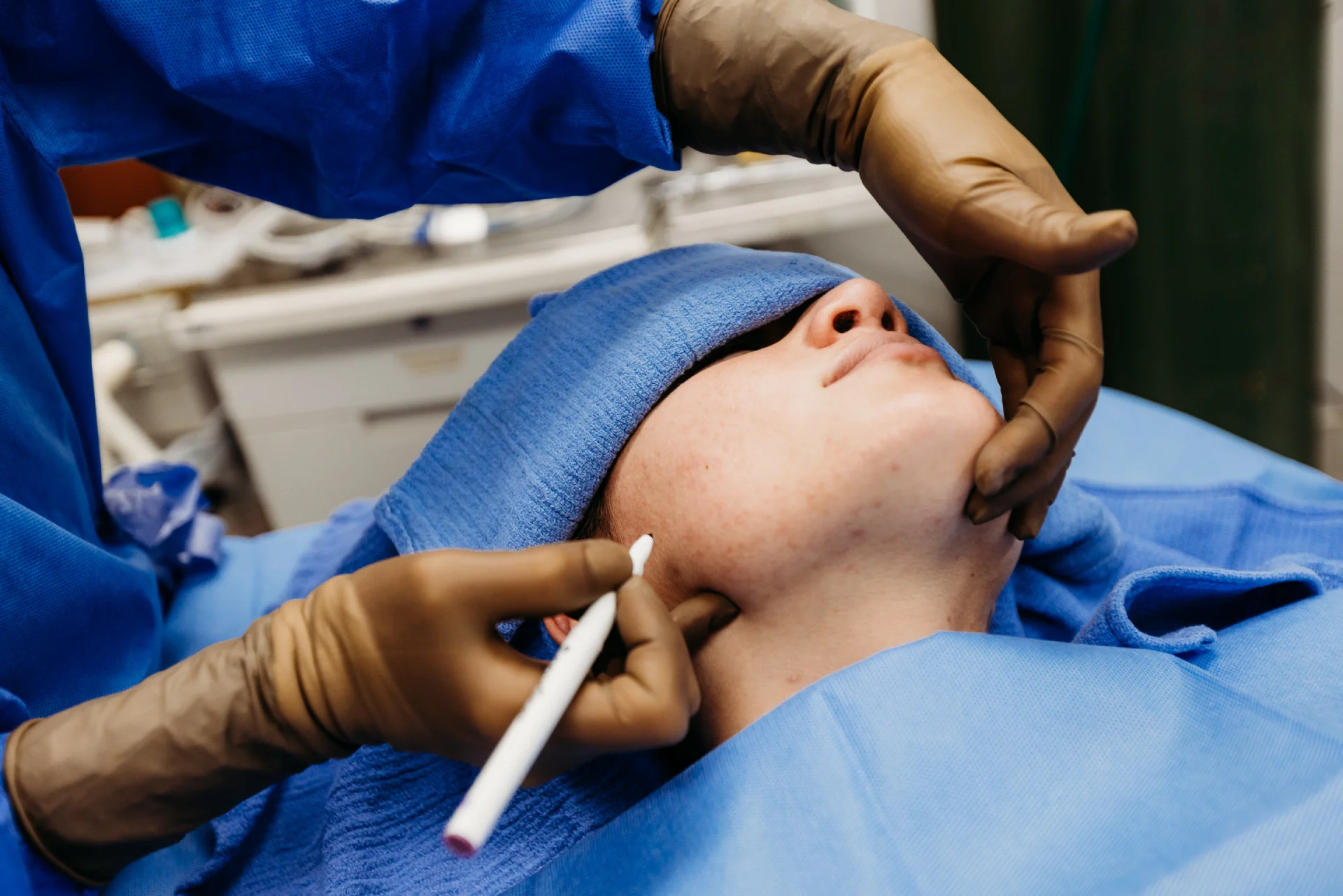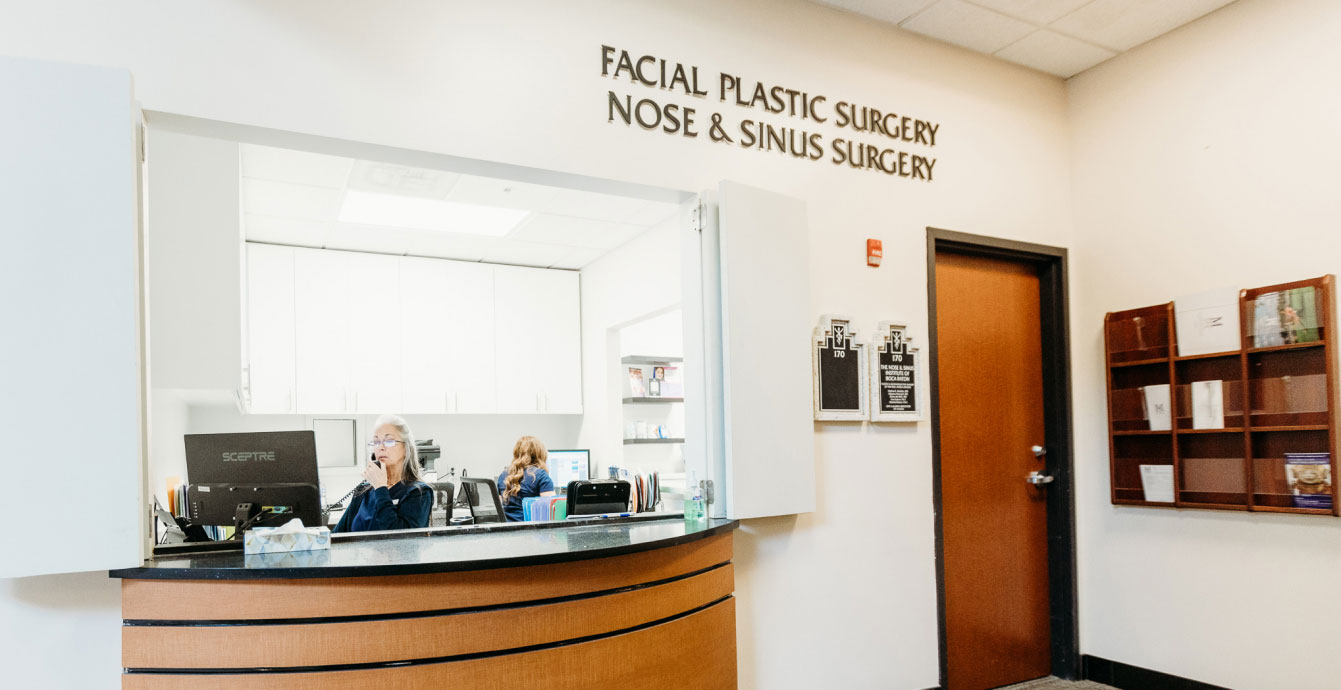


Dr. Hancock · January 23, 2025
Recovering from a facelift? What you eat can make all the difference. A well-planned diet helps minimize swelling, speeds up healing, and keeps you feeling your best. As facial plastic surgeons, we’re here to guide you through the best foods for a smooth recovery.At FSIBR, we understand that our patients want to recover and get back to their daily routines ASAP, that’s why knowing what to eat after facelift surgery can make a big difference in your recovery. As experienced facial plastic surgeons, Dr. Melissa Hancock and Dr. Jaclyn A. Klimczak have guided countless patients through successful recoveries, and we’ve seen firsthand how the right nutrition makes all the difference. Healing facelift surgery isn’t just about rest; it’s about giving your body the fuel it needs to recover efficiently. Eating well can reduce swelling, ease discomfort, and lead to a faster recovery. Certain foods have natural anti-inflammatory properties that help your body heal from the inside out, while vitamins and minerals support tissue repair, ensuring your skin looks and feels its best.
The key to a great recovery is finding the right foods to eat after facelift surgery; eating soft, nutrient-rich foods that promote healing without putting strain on your jaw or incisions. Your diet should be focused on reducing inflammation, supporting tissue repair, and keeping you hydrated while being gentle on your healing face.
Protein is the building block of tissue repair, which is crucial after facelift surgery. It plays a key role in producing collagen, the protein that keeps skin strong and elastic. Without enough protein, your body may take longer to heal, and your incisions may not close as efficiently.
To make eating easier, opt for soft, high-protein options such as:
After surgery, inflammation is your body’s natural response to healing, but too much of it can cause discomfort and prolonged swelling. Anti-inflammatory foods contain powerful antioxidants and essential nutrients that speed up the healing process while minimizing swelling and discomfort.
Consider incorporating these inflammation-fighting foods:
Proper hydration is essential for reducing swelling, flushing out toxins, and maintaining overall comfort during your recovery. Dehydration can make you feel fatigued, delay healing, and even increase swelling around your incisions.
To stay hydrated, be sure to drink plenty of fluids and incorporate water-rich foods such as:
Your facial muscles and jaw may feel sore after surgery, so making sure you have soft foods to eat after a facelift will prevent unnecessary strain on your healing tissues. Hard-to-chew foods can cause discomfort or even disrupt your incisions.
Opt for easy-to-eat, comforting foods like:
Vitamins A, C, E, and zinc play a critical role in tissue repair and wound healing. They work together to boost collagen production, protect cells from damage, and support your immune system.
Make sure to include:
Your body is working hard to heal after surgery, and the last thing you want is to slow things down with the wrong foods. Some foods can increase swelling, cause discomfort, or make eating a challenge—so let’s go over what to skip and why.
Right now, your jaw and facial muscles need rest, not a workout! Chewing tough foods can be uncomfortable and might even put a strain on your incisions. Give your face a break by avoiding:
Salt makes your body hold onto water, which means more swelling—and that’s the last thing you want after a facelift! Too much sodium can also slow down healing, so steer clear of:
As tempting as comfort foods might be right now, too much sugar and unhealthy fats can increase inflammation and slow down the healing process. It’s best to avoid:
Your face is already sensitive, and spicy or acidic foods can make things worse by causing irritation or discomfort. Right now, it’s best to avoid:
Your recovery should be as smooth and comfortable as possible, and avoiding these foods will help your body heal faster and with less swelling. Remember, every small choice adds up to a better result! And if you’re ever unsure about what’s best for your recovery, Dr. Hancock and Dr. Klimczak are always here to offer their expert advice and excellent care.
At FSIBR, we understand that facelift recovery isn’t just about healing, it’s about feeling supported every step of the way. Eating might feel different at first, but nourishing your body properly will make a big difference. Stick to smaller, more frequent meals to avoid discomfort, and let hot foods cool before eating. If chewing is difficult, try smoothies, soups, or mashed foods. Avoid straws, as suction can put pressure on your incisions. Recovery takes time, so ease back into eating gradually and listen to your body. Most importantly, you’re not alone, our team is here to guide you through every stage of healing, ensuring you recover comfortably and confidently.
Listen to your body, take it slow!
At the Facial Surgery Institute of Boca Raton, right in the heart of Boca Raton, our board-certified female plastic surgeons specialize in advanced facelift techniques designed to deliver natural, long-lasting results. Dr. Melissa Hancock and Dr. Jaclyn A. Klimczak bring years of expertise, blending surgical precision with a deep commitment to patient care. We understand that undergoing a facelift is a big decision, and recovery can feel overwhelming. That’s why we’re here, not just as your surgeons but as your guides through every step of the journey. From your initial consultation to the final stages of healing, we provide expert advice, including essential guidance on post-surgery nutrition and optimal healing.
If you’re dealing with prolonged swelling, pain, or trouble eating after your facelift, reach out to us. While some discomfort is normal, anything persistent may need extra care. At FSIBR, our team is here to support your recovery with expert guidance, whether it’s diet adjustments, pain management, or simply peace of mind.
A facelift is a big step, and choosing the right team makes all the difference. Whether you’re considering the procedure or need expert post-op care, FSIBR is here for you. Contact us today to discuss your options and create a recovery plan tailored to your needs.

Written by Facial Surgery Institute of Boca Raton Medical Experts


October 25, 2024
Considering a facelift is a big decision, and if you’ve just undergone the procedure or are planni ...
